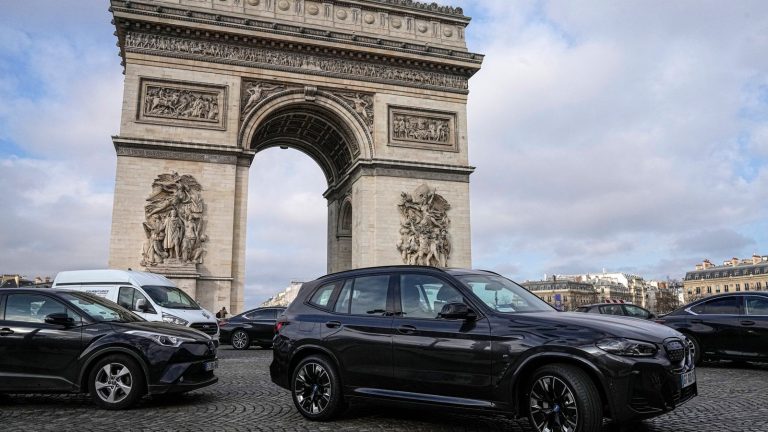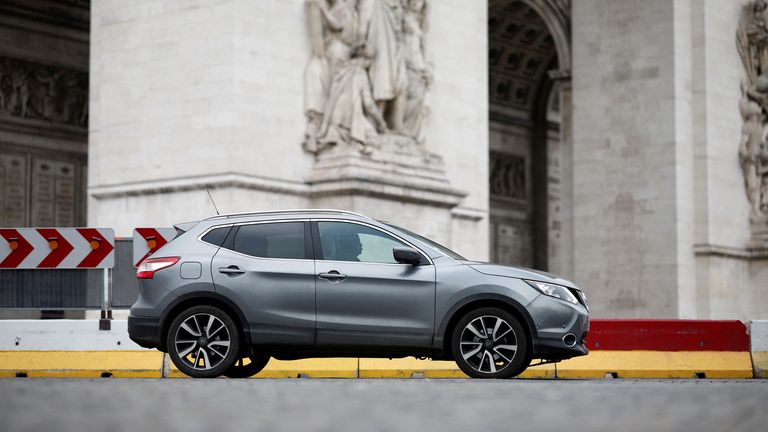Parking fees for some SUVs in Paris are set to triple, following a historic vote on Sunday evening.
about 54.5% Parisians Vote on increasing the prices of parking permits for cars weighing more than 1.6 tons from outside the city.
Only 5.7% of voters participated in the referendum, which asked whether voters were “for or against setting a specific parking rate for heavy, bulky, and polluting individual vehicles?”
This is the latest effort by Socialist Mayor Anne Hidalgo to make the city this year's host Olympic Games Greener and friendlier to pedestrians and cyclists.
The cost of parking SUVs in central areas of Paris for drivers without a special license from local authorities is set to rise to €18 (£15) per hour during the first two hours, compared to €6 (£5) per hour. For small cars.
After that, parking will become increasingly punitive.
A six-hour stay in a 4×4 costs €225 (£192), compared to €75 (£64) for smaller vehicles.
The new tariff will also apply to electric cars weighing two tons or more.
After announcing the results, Ms. Hidalgo said: “We are proud to ask a prominent environmental question at a time when the environment is presented as the source of all evil.
“It is a form of resistance here in Paris to this very disturbing movement.”
But the plan has angered drivers, with motorists' lobby group 40 Million Motorists launching a petition to support drivers' freedom to use any vehicle they want.
“We must strongly oppose these attacks on freedom carried out under false green pretexts,” the group said.
Read more:
Forest fire kills at least 46 people in Chile
An astronaut breaks the record for most time spent in space
Former Hamas hostage “threatened with a knife” during his ordeal
“If we don’t stop this now, this senseless rebellion led by a minority of extremist, anti-car urbanites will spread like gangrene to other cities.”
The vote, part of long-term plans to turn Paris into a bikeable city, comes less than a year after city residents voted to ban electric scooters.
Under Ms. Hidalgo's administration, 84 kilometers of bike lanes have been created since 2020, with a 71% jump in bike use between the end of the coronavirus lockdowns and 2023, according to the city council.



